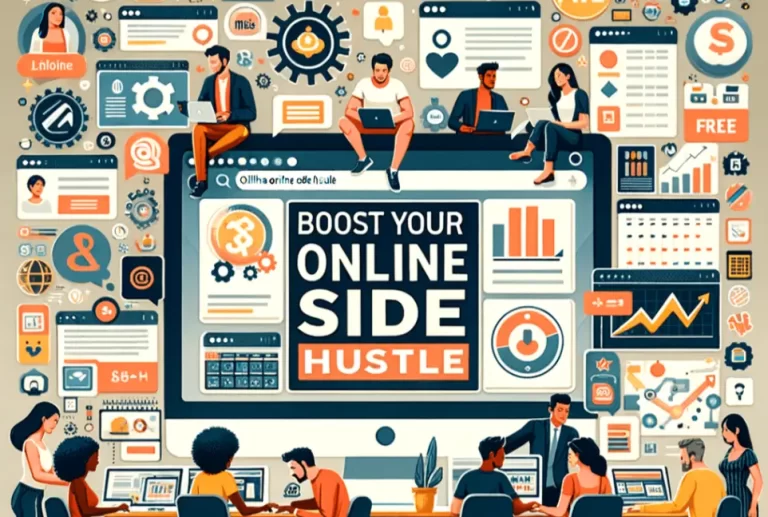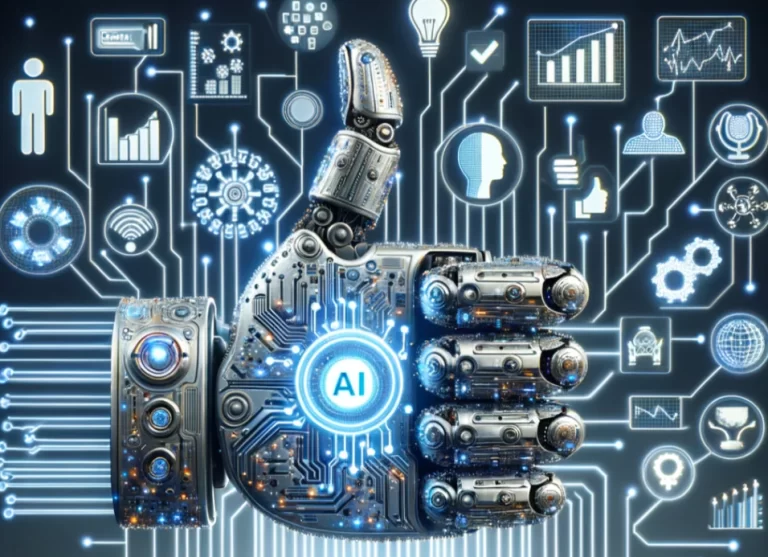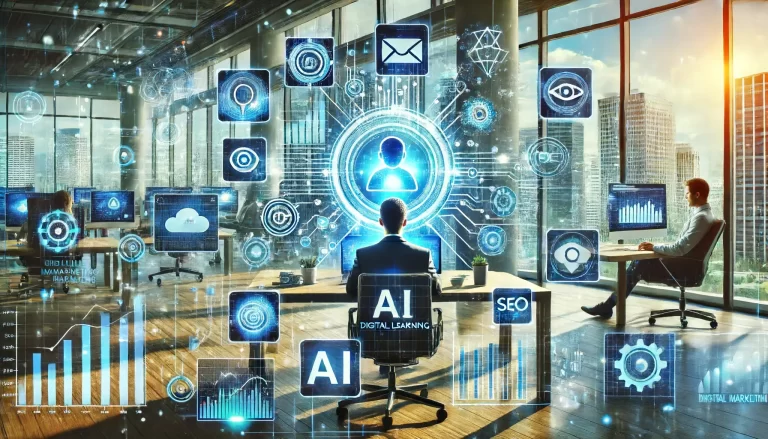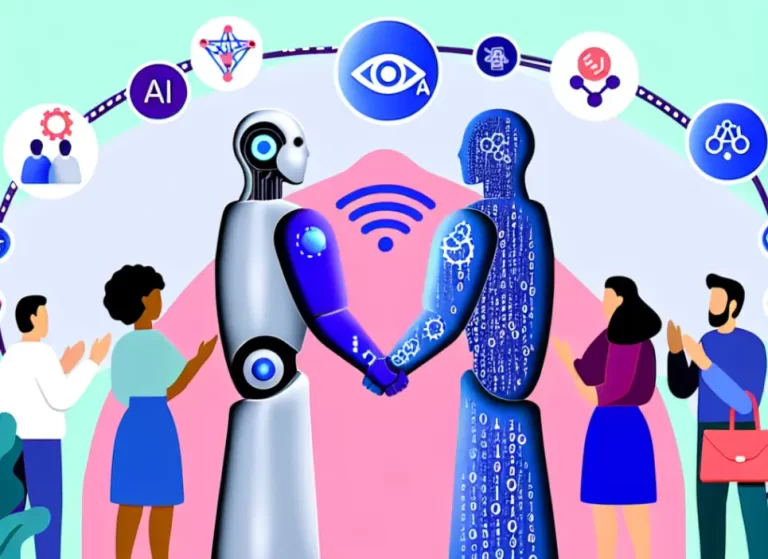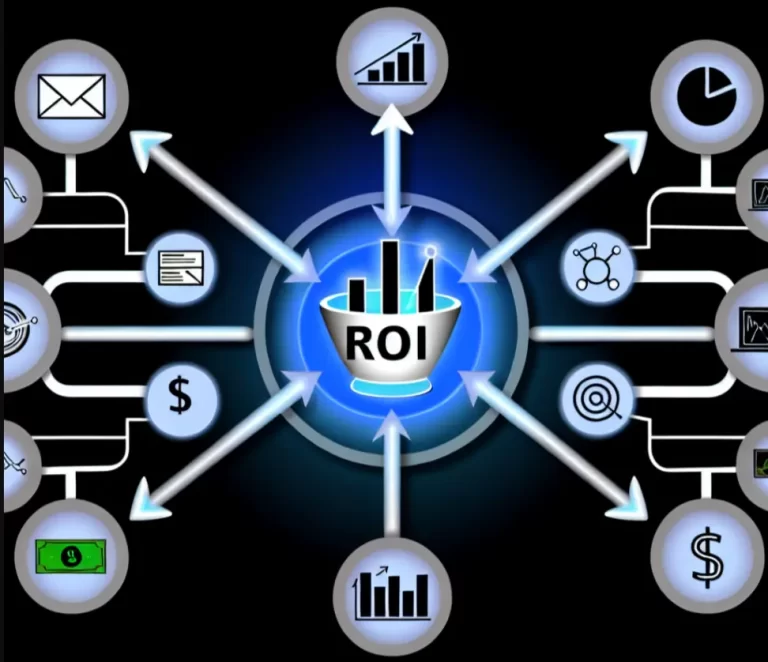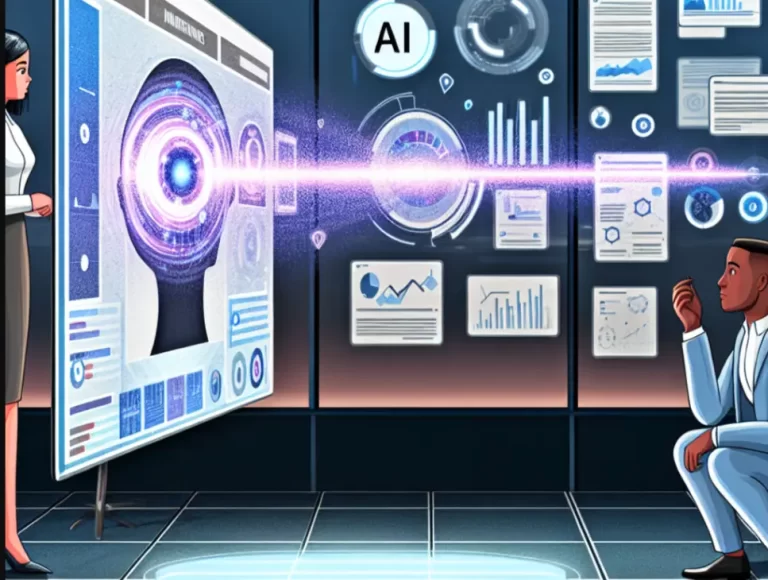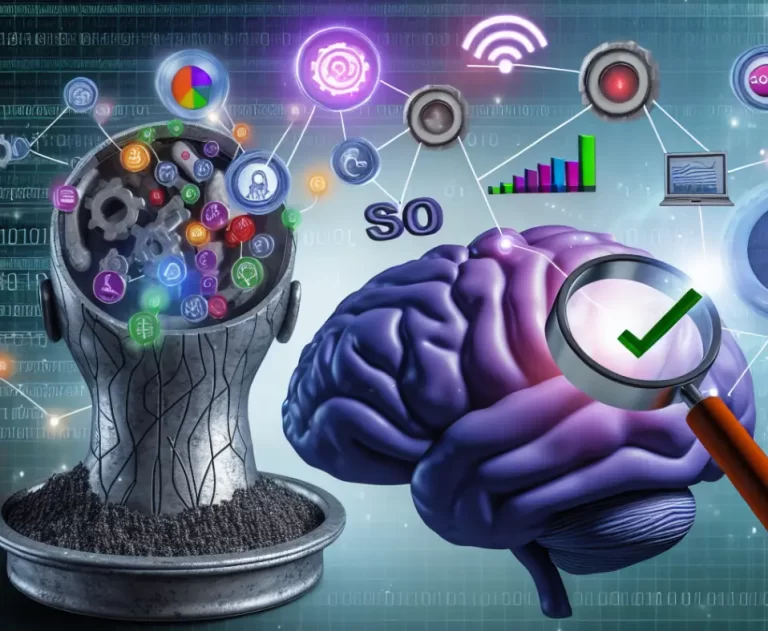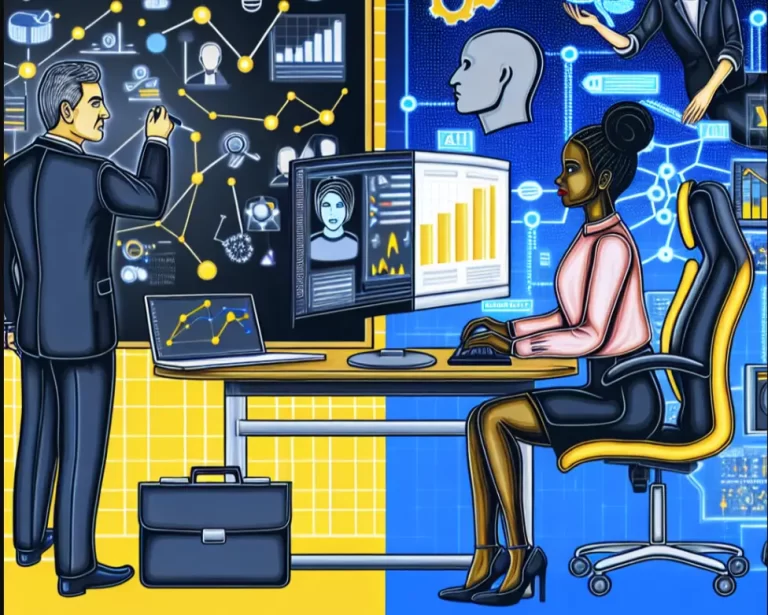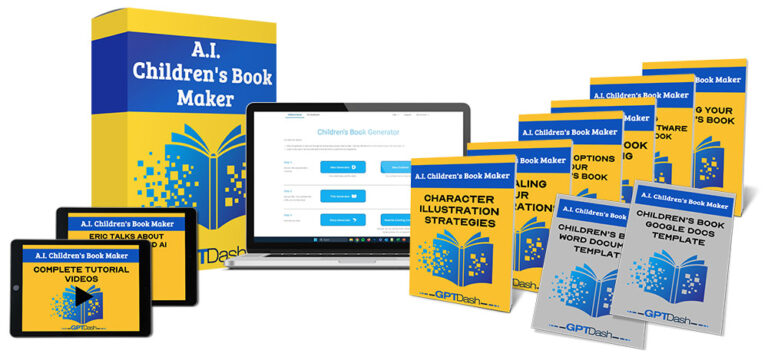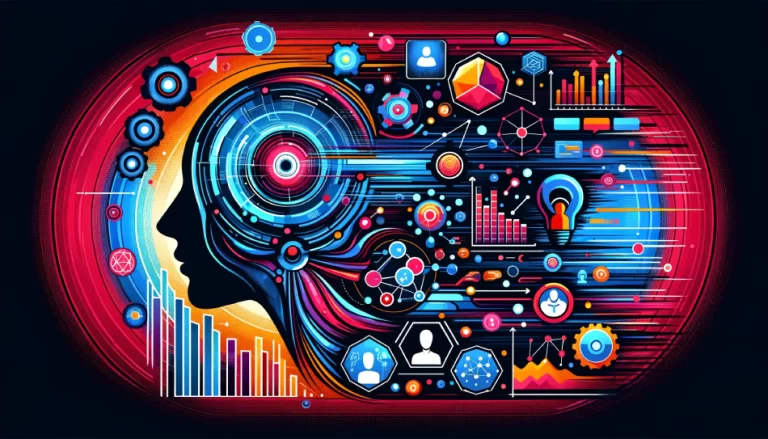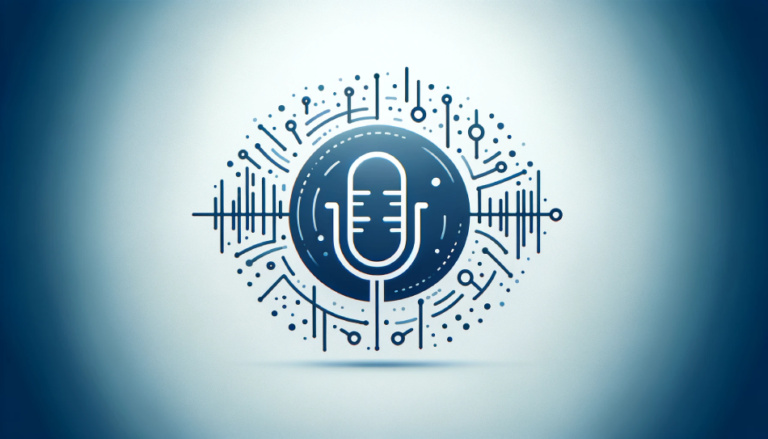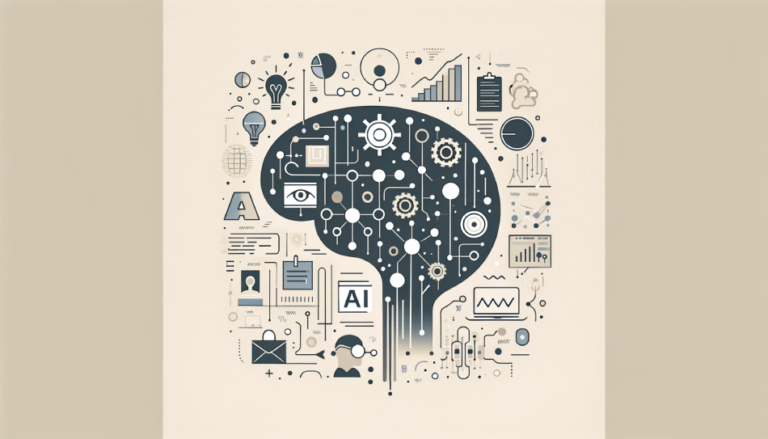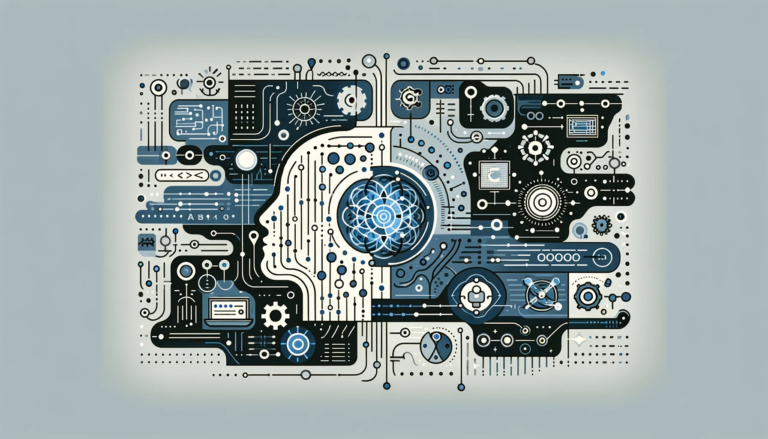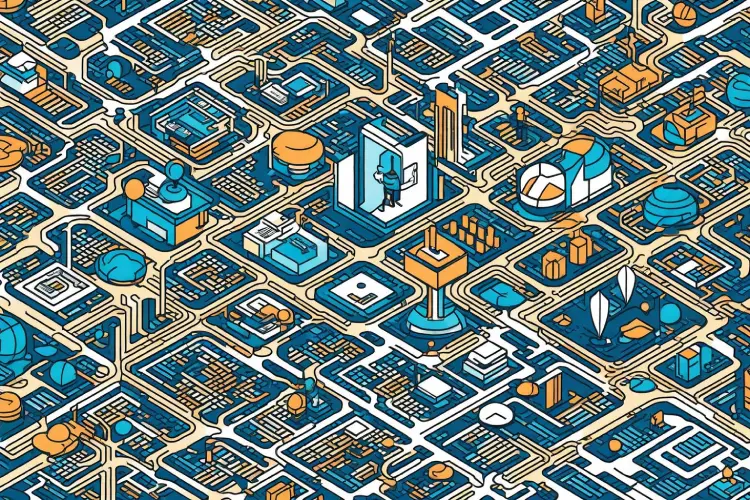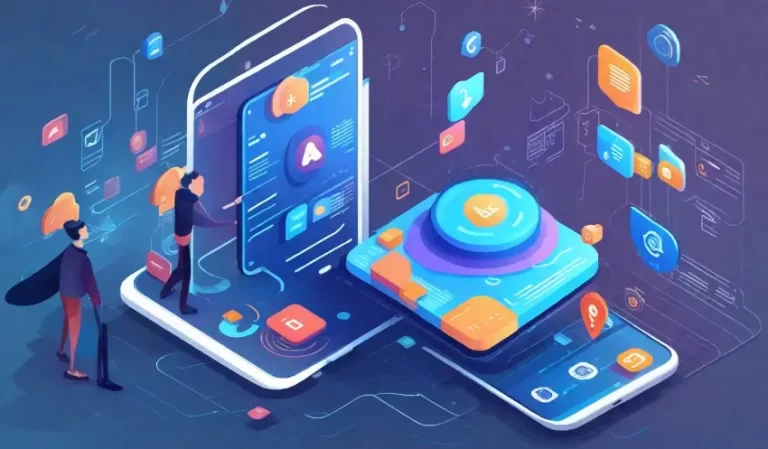Introduction to AI-Powered Digital Marketing Automation
In today’s fast-paced digital world, staying ahead of the curve is like riding a wave—you’ve got to catch it just right to ride it smoothly. And guess what? AI-powered digital marketing automation is the surfboard you need to catch that wave!
So, what exactly is AI-powered digital marketing automation, and why should you care about it? Let’s dive in and explore this game-changing technology.
What is AI-Powered Digital Marketing Automation?
Imagine having a super-smart assistant that never sleeps, constantly learns, and works tirelessly to optimize your marketing efforts. That’s essentially what AI-powered digital marketing automation brings to the table. It’s the use of Artificial Intelligence (AI) to automate repetitive marketing tasks, derive insightful analytics, and personalize customer interactions—all without breaking a sweat.
AI can handle everything from email campaigns and social media posts to customer segmentation and predictive analytics. It’s like having a swiss army knife for your digital marketing strategy.
Why is it a Game-Changer?
AI-powered digital marketing automation isn’t just a fancy buzzword; it’s a paradigm shift in how we approach marketing. Here’s why it’s a game-changer:
- Efficiency: AI takes on mundane tasks, freeing up your time to focus on creative strategies and big-picture planning.
- Accuracy: Humans make mistakes, but AI algorithms are designed to minimize errors and maximize precision.
- Scalability: Whether you’re a small business or a global brand, AI scales with your needs without skipping a beat.
- Data-Driven Decisions: AI excels at processing vast amounts of data, providing actionable insights that can guide your marketing strategy.
Getting Started with AI-Powered Marketing Automation
Feeling excited? Ready to give AI a whirl? Here’s how you can start integrating AI into your digital marketing:
- Identify Repetitive Tasks: Begin by pinpointing tasks that are time-consuming and repetitive. These are the low-hanging fruits for AI automation.
- Choose the Right Tools: There are numerous AI-powered marketing platforms out there. Some popular ones include HubSpot, Marketo, and Mailchimp. Do a bit of research to find the one that best fits your needs.
- Start Small: Don’t overwhelm yourself by trying to automate everything at once. Start with one process, refine it, and gradually expand.
- Measure and Optimize: The beauty of AI is its ability to learn and improve over time. Continuously monitor performance and make data-driven adjustments.
A Peek into the Future
The future of digital marketing is bright, thanks to AI. We’re talking about more than just smarter chatbots and tailored emails. Think advanced customer experiences, hyper-personalized marketing, and even real-time predictive analytics. The possibilities are endless!
Final Thoughts
AI-powered digital marketing automation is not just a trend—it’s the future. By embracing this technology, you’re not only staying competitive but also setting your brand up for long-term success.
So, are you ready to ride the AI wave and transform your digital marketing game? 🌊💡
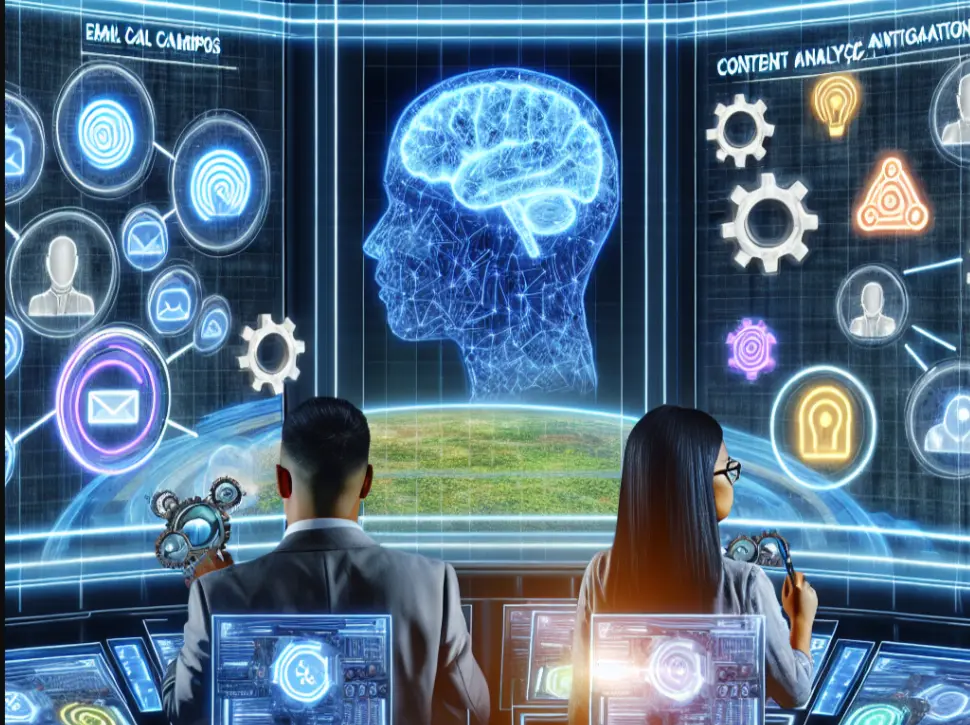
Benefits of AI in Digital Marketing
Hey there! Have you ever wondered how brands seem to magically know exactly what you want, sometimes even before you do? That’s no magic trick — it’s the power of AI at play in digital marketing. Let’s dive into some of the incredible benefits that AI brings to the table in this space.
1. Enhanced Efficiency
First off, AI can handle repetitive tasks faster and more accurately than humans. Think about all those hours you could save if you didn’t have to manually sift through data or set up routine marketing campaigns. With AI, you can automate these processes, freeing up your time to focus on strategic thinking and creative aspects of your business.
2. Superior Data Analysis
Data is the backbone of any successful marketing strategy. But mountains of data can be overwhelming. AI steps in to analyze this data in real-time, offering insights that are way more precise and actionable. This way, you can tweak your campaigns on-the-fly, ensuring you’re always hitting the right notes with your audience.
3. Personalized Customer Experiences
Imagine receiving a marketing email that feels like it was written just for you. That’s AI at work! AI algorithms can study user behavior, preferences, and past interactions to create highly customized experiences. Personalization at this level makes customers feel valued and increases engagement rates significantly.
4. Cost-Effectiveness
Who doesn’t love getting the best bang for their buck? AI can optimize your marketing budget by identifying which strategies yield the highest ROI. By automating and refining campaigns, you can allocate resources more efficiently, ensuring that every dollar spent is driving value.
5. Predictive Analytics
Wouldn’t it be fantastic to predict market trends and consumer behavior before they happen? AI makes this possible through predictive analytics. By analyzing historical data, AI can forecast future trends, helping you stay one step ahead of the competition and make informed business decisions.
6. Improved Customer Support
AI-powered chatbots and virtual assistants can handle customer queries around the clock, offering instant responses. This not only improves customer satisfaction but also frees up human agents to deal with more complex issues. The result? A more efficient and effective customer support system.
7. Enhanced Creativity
Believe it or not, AI can even boost creativity. Tools powered by AI can provide content suggestions, generate new ideas, and even create art and music. This allows marketers to push creative boundaries while ensuring their content is both relevant and engaging.
8. Seamless Integration
Last but not least, AI seamlessly integrates with existing marketing tools and platforms. Whether you’re using social media management tools, email marketing software, or CRM systems, AI can enhance their functionalities, making your overall marketing ecosystem more robust and effective.
So there you have it! AI is not just a buzzword; it’s a transformative force in digital marketing. By leveraging AI, you can make your marketing efforts more efficient, personalized, and impactful. Ready to let AI take your marketing to the next level?
Key Technologies Behind AI-Powered Marketing Tools
Hey there! Let’s dive into the fascinating world of AI-powered marketing tools. If you’re wondering what makes these tools tick, you’re in for a treat. We’ll explore the key technologies that drive this innovative field, breaking it down in a way that’s easy to understand and fun to learn. Ready? Let’s go!
Machine Learning
First up, we’ve got Machine Learning (ML). Imagine teaching your computer to learn patterns from data without explicitly programming it for every single task. That’s ML in a nutshell! In marketing, ML helps in predicting customer behavior, optimizing campaigns, and even suggesting the best times to post on social media. It’s like having a super-smart assistant who’s always two steps ahead.
Natural Language Processing (NLP)
Next on our list is Natural Language Processing (NLP). This technology allows computers to understand, interpret, and respond to human language. NLP is the magic behind chatbots, virtual assistants, and sentiment analysis. It’s what enables your favorite brands to offer personalized customer service through chatbots that understand and respond to your queries in real-time. Pretty cool, right?
Computer Vision
Ever wondered how AI can analyze images and videos? That’s where Computer Vision comes into play. This technology allows AI to ‘see’ and interpret visual content. In digital marketing, it’s used for tasks like identifying trending visual content, analyzing user-generated content, and even optimizing ad placements. Say goodbye to guesswork and hello to data-driven visual strategies!
Data Mining
Now, let’s talk about Data Mining. This technology digs through large datasets to find patterns and valuable insights. In the context of marketing, data mining helps in uncovering hidden trends, understanding customer preferences, and even predicting future buying behaviors. It’s like having a treasure map that leads you straight to the gold – or in this case, to your target audience.
Predictive Analytics
Another key player is Predictive Analytics. Leveraging historical data and ML algorithms, this technology forecasts future outcomes. For marketers, this means being able to predict which products will be popular, how effective a campaign will be, and even which customers are most likely to convert. Think of it as your marketing crystal ball – no more relying on hunches!
Robotic Process Automation (RPA)
Last but not least, we have Robotic Process Automation (RPA). This tech handles repetitive tasks that don’t require human creativity, such as data entry, email responses, and social media posting. By automating these mundane tasks, RPA frees up your time so you can focus on the strategic and creative aspects of your marketing efforts. It’s like having an extra pair of hands that never gets tired.
Wrapping It Up
There you have it! These are the key technologies that power AI-driven marketing tools. From Machine Learning and NLP to Computer Vision and Predictive Analytics, each plays a crucial role in making your marketing smarter, more efficient, and incredibly effective. Embrace these technologies, and you’ll be well on your way to mastering the art of digital marketing in the AI era.
Thanks for joining me on this tech tour. I hope you found it as exciting and enlightening as I did. Happy marketing!
Personalization and Customer Segmentation
Have you ever wondered how companies seem to know exactly what you want, even before you do? The magic behind this seemingly psychic ability is AI-powered personalization and customer segmentation. Let’s dive into this fascinating world and see how it works!
Understanding Personalization and Customer Segmentation
At its core, personalization is all about delivering individualized experiences to customers. Imagine walking into your favorite coffee shop and the barista already knows your go-to order. It feels special, right? Now, think of this scenario happening online, thanks to AI.
Customer segmentation, on the other hand, is the process of dividing a broad consumer or business market into sub-groups of consumers based on shared characteristics. This allows marketers to tailor their messages and offerings to specific segments, making the communication more relevant and effective.
The Role of AI in Personalization
AI takes personalization to a whole new level by analyzing vast amounts of data in real-time to understand your preferences, behaviors, and needs. Here’s how:
- Behavior Analysis: AI algorithms track your interactions with websites, social media, and emails to build a profile based on your behavior.
- Predictive Analytics: By analyzing past behaviors, AI can predict future actions and preferences, allowing for proactive personalization.
- Dynamic Content: Websites and emails can display different content to different users based on AI insights, creating a unique experience for each visitor.
Segmentation Made Simple with AI
Gone are the days of manually sifting through data to segment your audience. AI automates this process, providing precise and actionable segments. Here’s what makes AI-powered segmentation so effective:
- Real-Time Data Processing: AI can process data as it is collected, enabling marketers to create segments on the fly.
- Granular Segmentation: AI can identify micro-segments within your audience, allowing for highly targeted marketing efforts.
- Continuous Improvement: AI learns and adapts over time, continuously refining segments to keep them relevant and accurate.
Real-World Examples
Let’s look at some real-world examples to see AI-powered personalization and segmentation in action:
- Netflix: Ever wondered how Netflix seems to always recommend the perfect show or movie? Their AI algorithms analyze your viewing history and preferences to suggest content tailored just for you.
- Amazon: Amazon’s recommendation engine uses AI to suggest products based on your browsing history and purchase behavior, making it easier to discover items you’ll love.
- Spotify: Spotify’s personalized playlists, like “Discover Weekly,” are powered by AI that analyzes your listening habits to curate music that suits your taste.
Tips for Implementing AI-Powered Personalization and Segmentation
Ready to harness the power of AI for your marketing efforts? Here are some tips to get started:
- Start with Quality Data: Ensure you have a robust data collection system in place. The better the data, the more effective your AI-powered personalization and segmentation will be.
- Choose the Right Tools: Invest in AI-powered marketing tools that align with your goals and integrate seamlessly with your existing systems.
- Monitor and Adjust: Regularly review the performance of your AI-driven efforts and make adjustments as needed to optimize results.
So, there you have it! AI-powered personalization and customer segmentation are revolutionizing the way businesses connect with their audience. By leveraging these technologies, you can create more meaningful and engaging experiences for your customers, ultimately driving loyalty and growth.
Automating Content Creation and Curation
Imagine having a reliable assistant who’s never tired, always creative, and knows exactly what your audience wants to hear. Sounds like a dream, right? Well, that’s pretty much what AI-powered tools can do for your content creation and curation efforts. Let’s dive into how these smart systems can transform the way you craft and share your content.
The Magic of AI in Content Creation
One of the most exciting aspects of AI is its ability to generate content that’s both engaging and relevant. Using Natural Language Processing (NLP) and machine learning, AI tools can write articles, create social media posts, and even draft emails. The best part? The content doesn’t just sound like a robot put it together. These tools have evolved to understand context, tone, and even humor.
For instance, platforms like Copy.ai and Jarvis are already helping marketers by creating compelling copy in a fraction of the time it would take a human. They analyze massive datasets to pick up on trending topics, popular phrases, and effective structures, ensuring that your content hits the mark every time.
Easing the Burden of Content Curation
Content curation is another area where AI shines. Regularly sharing high-quality, relevant content with your audience is crucial, but it can be incredibly time-consuming. AI steps in here by sifting through the oceans of information available on the internet to find the gems that your audience will love.
Tools like Curata and BuzzSumo use advanced algorithms to sort, rank, and recommend content based on your specified criteria. These platforms can identify trending topics, filter out irrelevant or low-quality articles, and even suggest the best times to share curated content for maximum impact.
Creating More Personalized Content
Personalization is key in today’s marketing landscape, and AI is a game-changer in this regard. By analyzing user data, AI-powered tools can create personalized content tailored to individual preferences, browsing history, and purchasing behavior. This means the content you’re sharing isn’t just good—it’s exactly what your audience is looking for.
For example, AI can help you segment your audience and tailor content for each segment. If you’re an e-commerce brand, AI can generate product descriptions that highlight features most appealing to different customer groups. Or, if you’re running a blog, AI can suggest topics that are likely to resonate with different parts of your reader base.
Boosting Efficiency and Creativity
Let’s face it: creating and curating content can be a grind. But with AI taking on much of the heavy lifting, you’re free to focus on what you do best—being creative and strategic. Think of AI as your creative partner, giving you the time and space to brainstorm big ideas, plan long-term strategies, and engage more deeply with your audience.
Plus, the efficiency boost is undeniable. With AI handling repetitive tasks, you can maintain a steady stream of high-quality content without burning out. This consistent output keeps your audience engaged and helps you stay top-of-mind.
Final Thoughts
In the ever-evolving world of digital marketing, staying ahead of the curve is crucial. By leveraging AI for content creation and curation, you can ensure your messaging is always fresh, relevant, and personalized. The technology not only saves time but also opens up new avenues for creativity and engagement. So, why not give AI a shot and see how it can elevate your content game?
Data Analytics and Predictive Insights
Hey there! Let me tell you about one of the most exciting aspects of AI in digital marketing: Data Analytics and Predictive Insights. It might sound a bit techy and complex, but stick with me—it’s more fascinating than it seems and can really transform how you approach your marketing strategy. Ready? Let’s dive in!
Picture this: you’re a digital marketer with a ton of data at your fingertips. You know your audience is out there, but how do you find and engage them effectively? That’s where AI-powered data analytics come into play. These advanced tools can sift through mountains of data in the blink of an eye, providing you with actionable insights that are simply game-changing.
Understanding Your Data
First off, let’s talk about understanding your data. AI algorithms excel at processing vast amounts of information quickly and accurately. Instead of manually analyzing spreadsheets and trying to spot trends, AI tools can do it all for you. They can identify patterns and correlations that might not be immediately obvious to the human eye.
For example, AI can analyze user behavior on your website, social media engagement, email open rates, and more to identify what content resonates most with your audience. How cool is that?
Predictive Analytics
Now, let’s get into the really fun stuff: Predictive Analytics. Imagine being able to foresee what your customers will do next. Sounds like magic, right? With predictive analytics, it’s almost like having a marketing crystal ball.
Predictive analytics leverages historical data and uses AI to forecast future behaviors and trends. This means you can anticipate customer needs before they even arise. For instance, if the data suggests that a particular segment of your audience is likely to purchase a new product, you can tailor your marketing efforts to target them specifically, increasing your chances of conversion.
Optimizing Campaign Performance
But wait, there’s more! AI-driven data analytics can also help you optimize your marketing campaigns in real-time. Gone are the days of waiting until the end of a campaign to evaluate its success. With AI, you can monitor performance continuously and make adjustments on the fly.
- Discover which ads are performing best and allocate your budget more effectively.
- Identify the optimal times to post on social media to maximize engagement.
- Understand which email subject lines and content are driving the highest open and click-through rates.
By leveraging these insights, you can ensure that your marketing efforts are always hitting the mark.
Data-Driven Decision Making
One of the biggest advantages of using AI for data analytics is the ability to make data-driven decisions. In the past, marketing decisions were often based on intuition or guesswork. Now, you can base your strategies on solid data, reducing the risk of costly mistakes.
By having a clear understanding of what works and what doesn’t, you can allocate your resources more efficiently and focus on strategies that deliver the best results. It’s like having a road map that guides you on the best path to success.
Conclusion
So there you have it! Data analytics and predictive insights powered by AI can revolutionize your digital marketing efforts. They offer a deeper understanding of your data, allow you to predict future trends, optimize your campaigns, and make informed decisions.
Embracing these tools might just be the key to staying ahead in the ever-evolving world of digital marketing. Ready to take the plunge? Your data has all the answers—you just need the right tools to unlock them!
Enhancing Customer Engagement with AI
Hey there! If you’re looking to boost your customer engagement game, you’ve come to the right place. AI isn’t just a buzzword anymore; it’s revolutionizing the way we connect with customers. Let’s dive into how AI can help you engage with your audience like never before!
Why AI is a Game-Changer for Customer Engagement
First off, let’s talk about why AI is such a big deal. Customer engagement is all about creating meaningful interactions, and AI can help you do that more efficiently and effectively. AI tools analyze enormous amounts of data to understand customer behavior and preferences. This means you can provide a more personalized experience without the extra legwork.
Real-Time Interactions
AI-powered chatbots are the unsung heroes of real-time customer interaction. They can handle customer queries 24/7, providing instant responses and freeing up your human team to tackle more complex issues. Here are some cool things chatbots can do:
- Answer FAQs: Say goodbye to repetitive questions. Chatbots can handle the basics, like operating hours, return policies, and more.
- Guide Purchases: They can even recommend products based on customer interests, making shopping a breeze.
- Gather Feedback: Want to know how you’re doing? Chatbots can solicit customer feedback in a non-intrusive way.
Personalized Experiences
Imagine walking into a store and the salesperson knows exactly what you want. Sounds amazing, right? AI can make this a reality in the digital world through personalized experiences. By analyzing customer data, AI can tailor content, offers, and recommendations to individual users. For example:
- Customized Emails: AI can segment your email list and send personalized messages based on past behavior and preferences.
- Dynamic Website Content: Your website can display different content to different users based on their browsing history.
- Targeted Ads: AI ensures that the ads your customers see are relevant to their needs and interests.
Sentiment Analysis
Understanding how your customers feel about your brand is crucial. AI-powered sentiment analysis tools can scan social media, reviews, and customer feedback to gauge public sentiment. This helps you:
- Identify Issues: Quickly spot negative trends and address them before they escalate.
- Enhance Positive Feedback: Amplify positive experiences by sharing happy customer stories.
- Understand Customer Needs: Get a clearer picture of what your customers love or want to improve.
Predictive Engagement
AI doesn’t just help you with the present; it can also predict future trends and behaviors. Predictive analytics can forecast what products or services a customer might be interested in next. Here’s how you can leverage this:
- Loyalty Programs: Offer personalized rewards and incentives based on predicted customer behavior.
- Proactive Support: Address potential issues before they arise, enhancing customer satisfaction.
- Upsell Opportunities: Recommend complementary products or services at the right time.
Conclusion
With AI, enhancing customer engagement is not just easier; it’s also more effective. From real-time interactions to personalized experiences and predictive analytics, AI provides the tools you need to connect with your audience on a deeper level. So, why wait? Start exploring the world of AI and watch your customer engagement soar!
